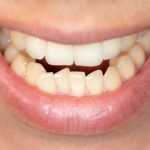Why Gums Growing Over Teeth Happen: Causes and Solutions

Gums growing over teeth is a dental problem that affects a significant number of people, and it can be both uncomfortable and unsightly. This condition, also known as gum overgrowth or gingival hyperplasia, occurs when the gum tissue surrounding the teeth increases in size and covers more of the tooth surface than normal. It can be caused by a variety of factors, including genetics, medications, poor oral hygiene, and certain medical conditions. Fortunately, there are several solutions available to address this issue and restore a healthy, attractive smile. The causes of gum overgrowth can vary depending on the individual, but some of the most common factors include hormonal changes, certain medications, and poor oral hygiene. Genetics may also play a role in the development of gum overgrowth, as some people may be more prone to this condition than others. Additionally, certain medical conditions such as leukemia, Crohn’s disease, and pregnancy can increase the risk of gum overgrowth. If left untreated, this condition can lead to a number of dental problems, including tooth decay, gum disease, and even tooth loss. Therefore, it is important to understand the causes of gum overgrowth and seek treatment as soon as possible.
Gum growing over teeth, also known as gum recession, occurs when the gums start to pull back from the teeth, exposing more of the tooth’s surface or even the root. This can lead to tooth sensitivity, pain, and even tooth loss if left untreated. Gum recession can be caused by a variety of factors such as poor oral hygiene, gum disease, aggressive brushing, hormonal changes, genetics, and even tobacco use. Fortunately, there are several solutions available to prevent and treat this condition, including improving oral hygiene habits, using special toothbrushes, undergoing gum graft surgery, and seeking professional dental care. By understanding the causes and solutions of gum recession, individuals can take proactive steps to maintain healthy gums and teeth for a lifetime.
Maintaining healthy gums and teeth is essential for overall oral health and hygiene. Gum overgrowth can be a sign of poor oral hygiene, which can lead to several dental problems such as tooth decay, bad breath, and even tooth loss. Proper brushing and flossing techniques, along with regular dental check-ups, can prevent gum overgrowth and other dental issues. Neglecting oral hygiene can also lead to gum disease, which can cause inflammation, bleeding gums, and eventually tooth loss. In addition, gum disease has been linked to several other systemic health issues such as heart disease and diabetes. Therefore, it is critical to maintain healthy gums and teeth to avoid dental problems and improve overall health and well-being.
Causes of Gum Growing Over Teeth

Gums growing over teeth, also known as gingival overgrowth, can occur due to a range of factors. One of the most common causes is poor oral hygiene. When individuals fail to brush and floss their teeth regularly, bacteria can accumulate on the gum line, leading to inflammation and swelling. Over time, this can cause the gums to grow over the teeth, making it difficult to clean the teeth properly and increasing the risk of tooth decay and gum disease. Additionally, certain medications, such as calcium channel blockers and immunosuppressive drugs, can cause gingival overgrowth as a side effect. In rare cases, genetic factors can also play a role in gum overgrowth. Another possible cause of gum growing over teeth is hormonal changes. Women may be more susceptible to this condition during puberty, pregnancy, and menopause due to fluctuations in hormone levels. In some cases, medical conditions such as leukemia, Crohn’s disease, and other autoimmune disorders can also cause gingival overgrowth. Finally, certain lifestyle factors, such as smoking and poor nutrition, can increase the risk of gum disease and gingival overgrowth. If left untreated, this condition can lead to serious oral health problems, including tooth loss, infection, and even systemic health issues. Therefore, it is important to seek professional dental care if you notice any signs of gum overgrowth, such as bleeding, swelling, or pain in the gums.
Genetics can play a significant role in determining the likelihood of developing gum overgrowth. Certain genetic factors may cause individuals to be more susceptible to gum overgrowth due to increased collagen production or altered metabolism of anti-inflammatory drugs. However, it is important to note that genetics alone do not determine the development of gum overgrowth and that environmental factors such as poor oral hygiene and certain medications can also contribute to the condition. Understanding the role of genetics in gum overgrowth can help individuals take proactive steps in maintaining good oral health and seeking appropriate treatment options.
Poor oral hygiene is a common cause of gums growing over teeth. Neglecting oral care can cause plaque buildup, which can lead to gum disease and ultimately result in gum recession. In addition to brushing and flossing regularly, it is important to maintain a balanced diet and avoid habits such as smoking that can contribute to poor oral health. Regular dental check-ups and cleanings can also help prevent the progression of gum disease and ensure that any issues are addressed before they become more severe. Taking proper care of your oral health is crucial not only for maintaining a healthy smile, but also for preventing complications such as gum recession.
Hormonal changes can be a significant factor in the development of gum overgrowth. For example, during puberty, pregnancy, or menopause, hormonal fluctuations can cause an increase in blood flow to the gums, making them more sensitive and susceptible to swelling. This can lead to a condition known as pregnancy gingivitis, where the gums become red, sore, and swollen. Additionally, certain medications, such as those used to treat epilepsy or high blood pressure, can also cause hormonal changes that may lead to gum overgrowth. It’s essential to speak with your dentist or doctor if you notice any changes in your gum tissue, as early intervention can help prevent further complications.
In some cases, medications can contribute to the development of gums growing over teeth. Certain medications, such as those used to treat epilepsy, high blood pressure, and immunosuppressants, can cause an overgrowth of gum tissue. This is due to the medication’s tendency to cause the gums to thicken and become inflamed. It is important to disclose all medication use to your dentist and doctor, as they may need to adjust your dosage or suggest alternative treatment options to prevent this dental issue from occurring. In addition, maintaining good oral hygiene practices, such as regular brushing and flossing, can help minimize the risk of gum overgrowth.
Medical conditions such as diabetes can contribute to the development of gum overgrowth over teeth. This is due to the fact that diabetes can cause changes in the body’s immune system, making it more difficult for the body to fight off infections in the gums. As a result, the gums may become inflamed and swollen, leading to overgrowth. Additionally, medications used to treat diabetes may also contribute to gum overgrowth. It is important for individuals with diabetes to maintain good oral hygiene and visit their dentist regularly to prevent and treat gum overgrowth.
Symptoms of Gum Growing Over Teeth
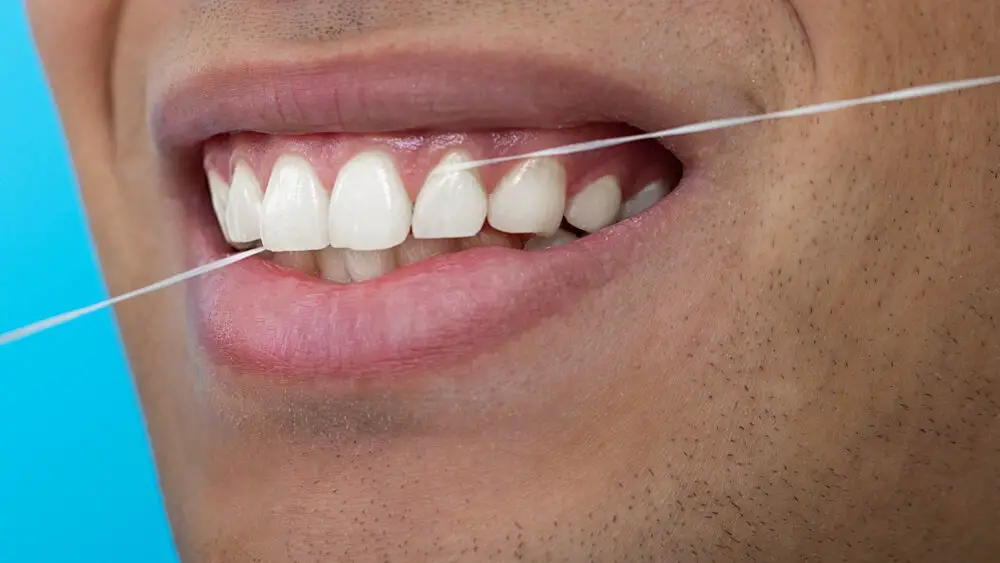
Gum growing over teeth, also known as gum overgrowth or gingival hyperplasia, is a condition where the gum tissue grows excessively and covers a significant portion of the tooth surface. This condition can be caused by various factors, including poor dental hygiene, certain medications, and genetic predisposition. Symptoms of gum overgrowth include swollen and red gums, pain or discomfort while chewing, bleeding gums, and bad breath. In severe cases, gum overgrowth can cause tooth sensitivity and even tooth loss. Gum overgrowth can also lead to aesthetic concerns, as the excessive tissue can make the teeth appear shorter and uneven. Moreover, the overgrown gum tissue can trap bacteria and food particles, leading to cavities and gum disease. Therefore, it is essential to seek dental treatment if you experience any symptoms of gum overgrowth. Your dentist can identify the underlying cause of your gum overgrowth and suggest appropriate treatment, which may include scaling and root planing, medication adjustment, or surgery to remove the excess tissue.
Swollen and tender gums are a common symptom of gum disease, which is a bacterial infection that affects the gums and the tissues that support the teeth. This condition is caused by the buildup of plaque, a sticky film of bacteria that forms on the teeth and gums. When left untreated, gum disease can lead to the growth of gums over teeth, as the gums attempt to protect themselves from the bacteria. Other causes of swollen and tender gums include improper brushing and flossing techniques, hormonal changes, and certain medications. If you are experiencing swollen and tender gums, it is important to seek professional dental care to identify the underlying cause and prevent further damage to your oral health.
Bleeding gums, also known as gingivitis, can be a common symptom of gums growing over teeth. This occurs when the gum tissue becomes inflamed and swollen, leading to bleeding during brushing or flossing. Poor oral hygiene, hormonal changes, and certain medications can all contribute to this condition. However, there are several solutions available to treat and prevent gums growing over teeth and the associated bleeding gums. Regular brushing and flossing, a healthy diet, and regular dental check-ups are all important in maintaining good oral health. In severe cases, a dentist may recommend gum surgery to remove excess tissue and promote healing. It is crucial to address bleeding gums promptly to prevent further damage and maintain a healthy smile.
Bad breath or halitosis is a common problem that affects many people, and it can be caused by a variety of factors, including poor oral hygiene, gum disease, smoking, and certain medical conditions. When bacteria build up in the mouth, they release sulfur compounds that can cause an unpleasant odor. Gum disease, which is characterized by inflammation and infection of the gums, can also contribute to bad breath. In some cases, gum disease can cause gums to grow over teeth, creating pockets where bacteria can thrive. To prevent bad breath and gum disease, it is important to maintain good oral hygiene habits, including regular brushing and flossing, and to visit the dentist regularly for cleanings and checkups.
Loose teeth can be a concerning issue and is often a symptom of gum disease. Gum disease is caused by the buildup of plaque and bacteria on the teeth and gums, which can lead to the gums becoming inflamed and the teeth becoming loose. Other causes of loose teeth can include injury to the mouth or jaw, grinding teeth, and hormonal changes. It is important to address loose teeth promptly to prevent further damage and potential tooth loss. Treatment options may include deep cleaning, antibiotics, or in severe cases, surgery. Maintaining good oral hygiene practices and regular dental check-ups can help prevent loose teeth and gum disease.
Receding gums, also known as gingival recession, is a condition where the gum tissue pulls away from the tooth, exposing the root surface. This condition is common among adults, and it can cause sensitivity, tooth decay, and even tooth loss if left untreated. Various factors can contribute to receding gums, including poor oral hygiene, aggressive brushing, gum disease, hormonal changes, and genetics. The treatment for receding gums depends on the severity of the condition and can range from deep cleaning, gum grafts, and tissue regeneration. Maintaining good oral hygiene, using a soft-bristled brush, and avoiding tobacco products can help prevent receding gums.
Solutions for Gum Growing Over Teeth
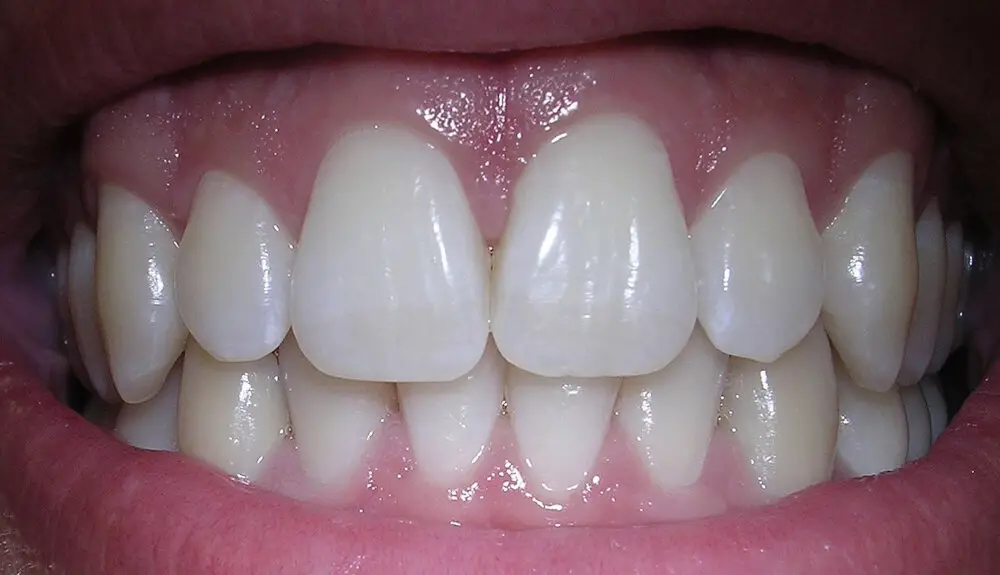
Gums growing over teeth, also known as gum overgrowth or gingival hyperplasia, can be caused by a variety of factors, including genetics, certain medications, and poor dental hygiene. While it may seem like a minor issue, gum overgrowth can lead to discomfort, difficulty chewing, and even tooth loss if left untreated. Fortunately, there are several solutions available to help manage this condition. One of the most effective solutions for gum overgrowth is regular dental hygiene. Brushing and flossing regularly can help to remove plaque buildup and prevent the growth of bacteria that can lead to gum inflammation. Additionally, using an antiseptic mouthwash can help to kill bacteria and reduce inflammation. In some cases, a dental professional may recommend scaling and root planing, which is a deep cleaning procedure that removes plaque and tartar from beneath the gums and smooths the root surfaces to help prevent bacteria from adhering to them. If the gum overgrowth is severe, surgical procedures such as gingivectomy or gingivoplasty may be necessary to remove excess tissue and reshape the gums. Ultimately, the best solution for gum overgrowth will depend on the underlying cause and severity of the condition, so it is important to consult with a dental professional for a personalized treatment plan.
Regular dental checkups and cleanings are crucial in maintaining good oral health and preventing gum growth over teeth. During these appointments, a dentist or dental hygienist can remove any built-up plaque or tartar that can lead to gum disease. They will also check for any signs of gum recession or gum overgrowth and provide treatments if necessary. Neglecting regular dental checkups and cleanings can lead to more serious oral health problems, such as periodontitis, which can ultimately result in tooth loss. By prioritizing regular dental appointments, individuals can ensure that their teeth and gums remain healthy and avoid the discomfort and embarrassment of gum growth over teeth.
Proper oral hygiene habits, including regular brushing and flossing, are essential to maintaining healthy teeth and gums. Brushing your teeth twice a day, for at least two minutes each time, helps to remove plaque and bacteria from the surface of your teeth. Flossing once a day helps to remove food particles and plaque from between your teeth and along the gum line, where brushing can’t reach. It’s important to use proper technique when brushing and flossing, as improper technique can actually cause damage to your teeth and gums. By taking care of your teeth and gums through regular brushing and flossing, you can help prevent gum recession and other dental problems.
When it comes to treating gums growing over teeth, there are a variety of medication and surgical options available depending on the severity of the condition. In mild cases, a dentist may prescribe antibiotics or a special mouthwash to reduce inflammation and prevent infection. For more advanced cases, surgical options such as gum contouring or gum grafting may be recommended. Gum contouring involves reshaping the gum line to expose more of the tooth’s surface, while gum grafting involves taking tissue from another part of the mouth and grafting it onto the affected area. In extreme cases, tooth extraction may be necessary. Therefore, it is important to consult with a dental professional to determine the best course of treatment for your specific needs.
Lifestyle changes such as quitting smoking can have a significant impact on preventing gums growing over teeth. Smoking is known to cause a reduction in blood flow to the gums, leading to inflammation and weakening of the gum tissue. This can result in overgrowth of the gums, which can be a painful and unsightly problem. By quitting smoking, individuals can improve blood flow to the gums, allowing them to heal and preventing further overgrowth. Additionally, maintaining good oral hygiene habits, such as regular brushing and flossing, can also help prevent gum overgrowth. A healthy diet rich in vitamins and minerals can also contribute to overall oral health, reducing the risk of gum problems. Making these lifestyle changes can not only prevent gum overgrowth but also improve overall health and well-being.
Prevention of Gum Growing Over Teeth
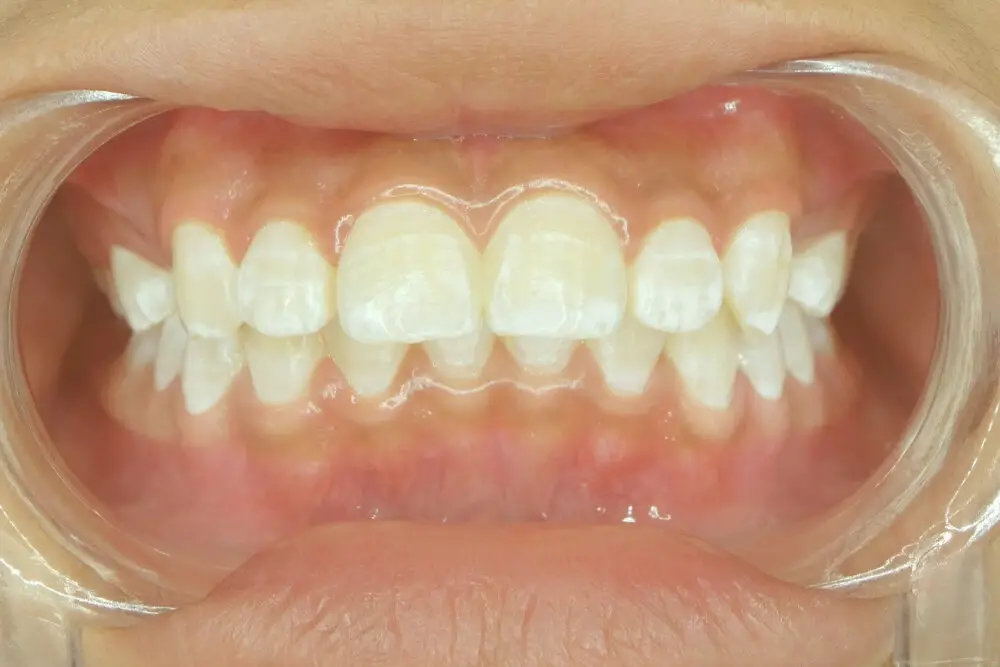
Gum growing over teeth, also known as gum overgrowth or gingival hyperplasia, can be a significant dental issue that affects the overall health of your mouth. The condition occurs when the gum tissue around your teeth grows excessively, leading to a range of complications such as pain, inflammation, and infection. Fortunately, there are various ways to prevent gum overgrowth and maintain healthy gums. One of the most effective ways is to maintain good oral hygiene by brushing your teeth twice a day and flossing regularly to remove food particles and plaque. Additionally, visiting your dentist for regular checkups and cleanings is crucial in preventing gum overgrowth as they can identify and treat the problem early before it becomes severe. In some cases, medications such as immunosuppressants and calcium channel blockers can cause gum overgrowth. If you are on medication, it is essential to inform your dentist about it so they can monitor the condition of your gums and adjust your medication if necessary. Moreover, if you have a family history of gum disease or overgrowth, it’s essential to inform your dentist to take preventative measures such as frequent cleanings and monitoring. By taking these preventative measures, you can maintain healthy gums and reduce the risk of gum overgrowth, which can cause significant dental complications.
Maintaining good oral hygiene is crucial to prevent gums growing over teeth. Brushing teeth twice a day with fluoride toothpaste and flossing daily can remove plaque buildup that can lead to gum disease. Using an antiseptic mouthwash can also help to kill bacteria in the mouth. It is important to visit a dentist regularly for checkups and cleanings to detect any signs of gum disease early and prevent it from progressing. Eating a balanced diet and avoiding sugary foods and drinks can also contribute to maintaining good oral hygiene and preventing gum disease. By making oral hygiene a priority, individuals can prevent the discomfort and potential health complications associated with gums growing over teeth.
Regular dental checkups are an essential part of maintaining good oral health. These checkups can help identify any issues early on, such as gums growing over teeth, and prevent them from becoming more severe. During a dental checkup, a dentist will examine your teeth, gums, and mouth for any signs of infection, decay, or other issues. They may also perform a deep cleaning to remove any plaque or tartar buildup that can contribute to gum disease. By scheduling regular dental checkups, you can keep your teeth and gums healthy and prevent more serious dental problems from occurring.
Maintaining healthy lifestyle habits is crucial for overall well-being, including oral health. Brushing and flossing regularly, consuming a balanced diet, and avoiding tobacco and excessive alcohol use can prevent gum disease, which is one of the leading causes of gums growing over teeth. Additionally, staying hydrated and reducing stress levels can also contribute to healthy gums. Regular dental check-ups and cleanings can also help detect and treat any early signs of gum disease before it becomes a more severe issue. Adopting these healthy habits can not only prevent gums growing over teeth but also improve overall oral health and maintain a beautiful smile.
Though gums growing over teeth might be a common issue faced by many, it is not something that should be ignored. Monitoring medications and medical conditions can play a vital role in preventing this problem. Certain medications can cause overgrowth of gum tissue, and thus, it is essential to communicate with your healthcare provider about the side effects of any medication that you are taking. Additionally, keeping track of any medical conditions that can affect your oral health, such as diabetes, can help in preventing the growth of gums over teeth. By being vigilant and proactive, you can ensure that your oral health remains intact.
Gums growing over teeth, also known as gum recession, is a common dental problem that affects people of all ages. The main causes of gum overgrowth are poor oral hygiene, genetics, hormonal changes, certain medications, and gum disease. Symptoms of gum recession include tooth sensitivity, tooth decay, bad breath, and bleeding gums. To prevent gum recession, it is essential to maintain good oral hygiene habits such as brushing twice a day, flossing daily, and visiting the dentist regularly. In severe cases, treatments such as gum grafting, scaling, and root planing may be necessary to restore gum health and prevent further damage. Overall, early detection and treatment are crucial in preventing gum overgrowth and maintaining optimal oral health.
Oral health is of critical importance to prevent gum disease and other dental problems. Neglecting oral hygiene can lead to plaque buildup, which can cause inflammation of the gums and lead to gum disease. Additionally, gum disease can lead to gum recession, which can cause the gums to grow over teeth. This can cause discomfort and affect the overall appearance of the smile. To prevent these issues, it is important to practice good oral hygiene habits such as brushing twice a day, flossing daily, and visiting the dentist regularly for cleanings and checkups. By taking care of our oral health, we can maintain healthy gums and teeth, and avoid painful and costly dental problems in the future.
Conclusion
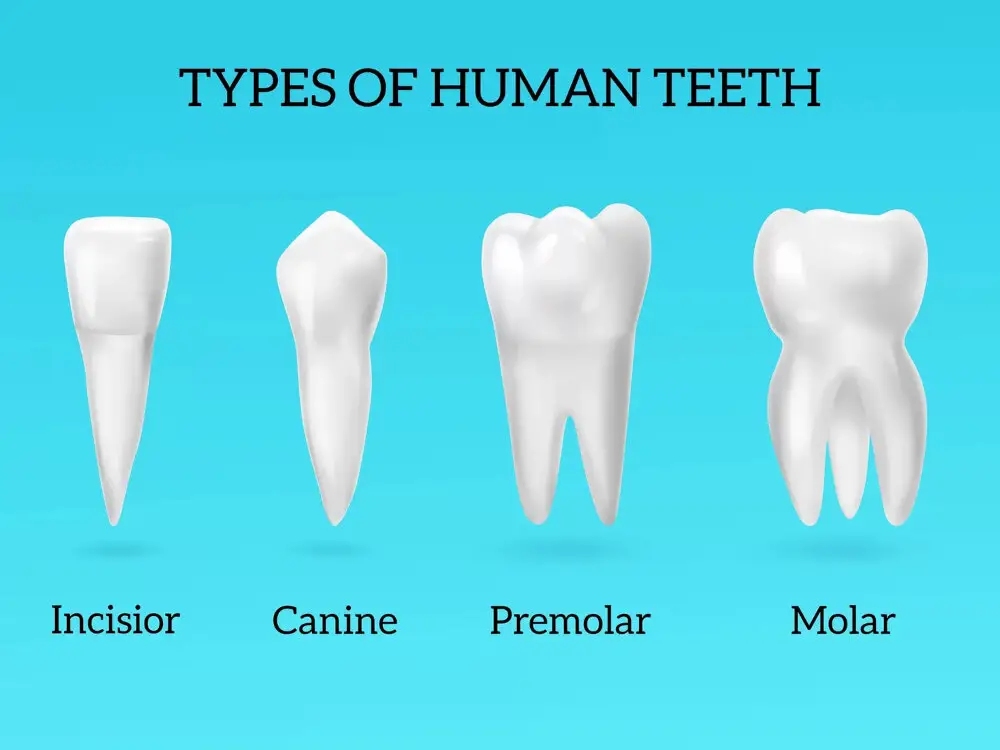
In conclusion, gums growing over teeth can be a result of various causes, such as poor dental hygiene, genetics, certain medications, and hormonal changes. It is crucial to identify the root cause and seek professional help to prevent the issue from worsening and causing further damage. Fortunately, there are several solutions available, including deep cleaning, gum surgery, and orthodontic treatment, that can effectively address the problem and restore healthy gums and teeth. Maintaining good oral hygiene practices and seeking prompt dental care can go a long way in preventing gum overgrowth and ensuring optimal dental health.




